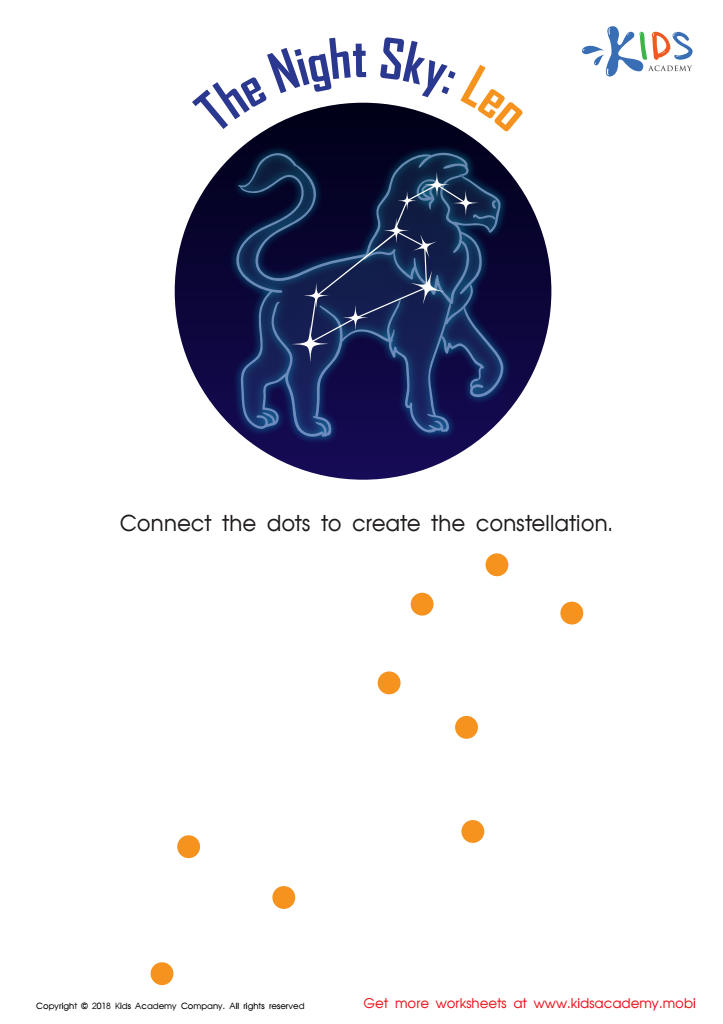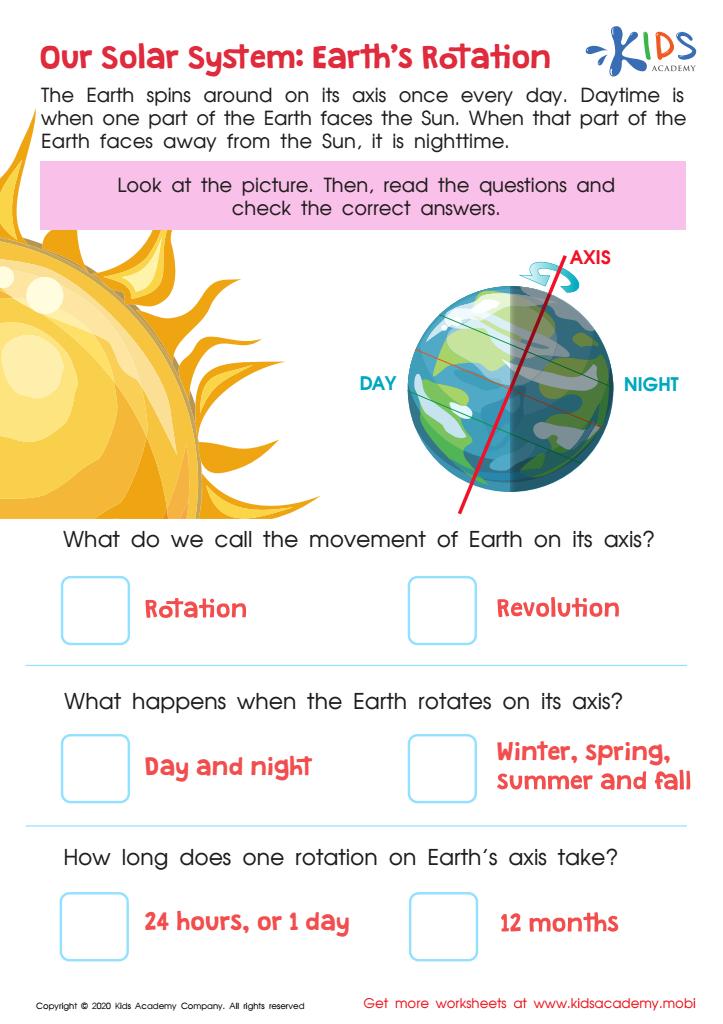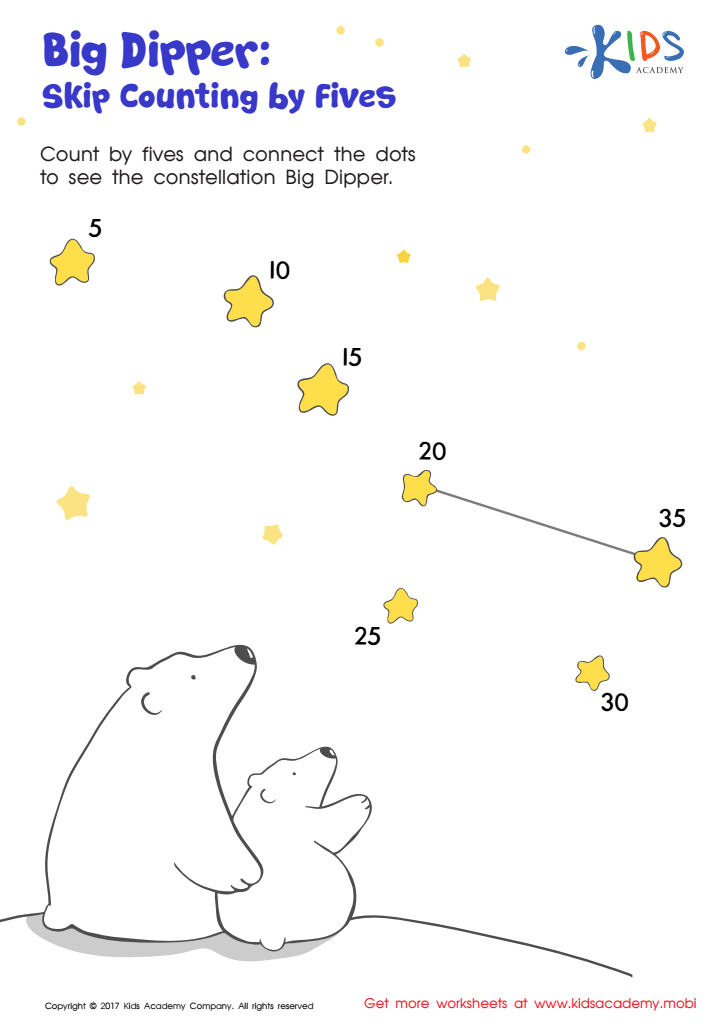Astronomy basics Worksheets for Ages 5-6
3 filtered results
-
From - To
Explore the wonders of the universe with our "Astronomy Basics Worksheets for Ages 5-6"! Specially designed for young learners, these engaging worksheets introduce fundamental astronomy concepts through fun, interactive activities. Perfect for curious minds, each worksheet covers essential topics such as the solar system, planets, stars, and moon phases with easy-to-understand explanations and vibrant illustrations. Foster a love of science and discovery in your child while enhancing their learning skills and creativity. Ideal for classroom or at-home use, these downloadable resources provide an exciting journey into the world of astronomy. Start exploring today!


The Night Sky: Leo Worksheet


Our Solar System: Earth's Rotation Printable
Understanding Astronomy basics can have immense benefits for young children, ages 5-6. First and foremost, it cultivates a sense of curiosity and wonder about the universe. At this tender age, children are naturally inquisitive, and learning about stars, planets, and moons can ignite a lifelong passion for exploration and learning.
Introducing Astronomy foster fundamental cognitive skills such as observation, questioning, and hypothesizing. These skills are crucial not just for science but for all areas of learning. For example, when a child asks why the moon changes shape, it opens an opportunity to teach them about the lunar cycle and the concept of change over time.
Astronomy also offers a valuable cross-curricular teaching opportunity. It can enhance literacy through storytelling about space, improve numeracy with counting stars and understanding measurements in space, and even inspire art projects like drawing planets or crafting models of the solar system. Such activities build a comprehensive educational experience that engages different parts of a child's brain.
Moreover, learning about the vastness of the universe can help foster perspective and humility. Realizing that Earth is just a tiny part of a much larger expanse can teach children about generosity and kindness by placing their own lives and problems in a broader context.
In summary, teaching young children the basics of Astronomy is not just about learning stars and planets; it's about nurturing curiosity, developing cognitive skills, and inspiring a holistic educational experience.

 Assign to My Students
Assign to My Students

















